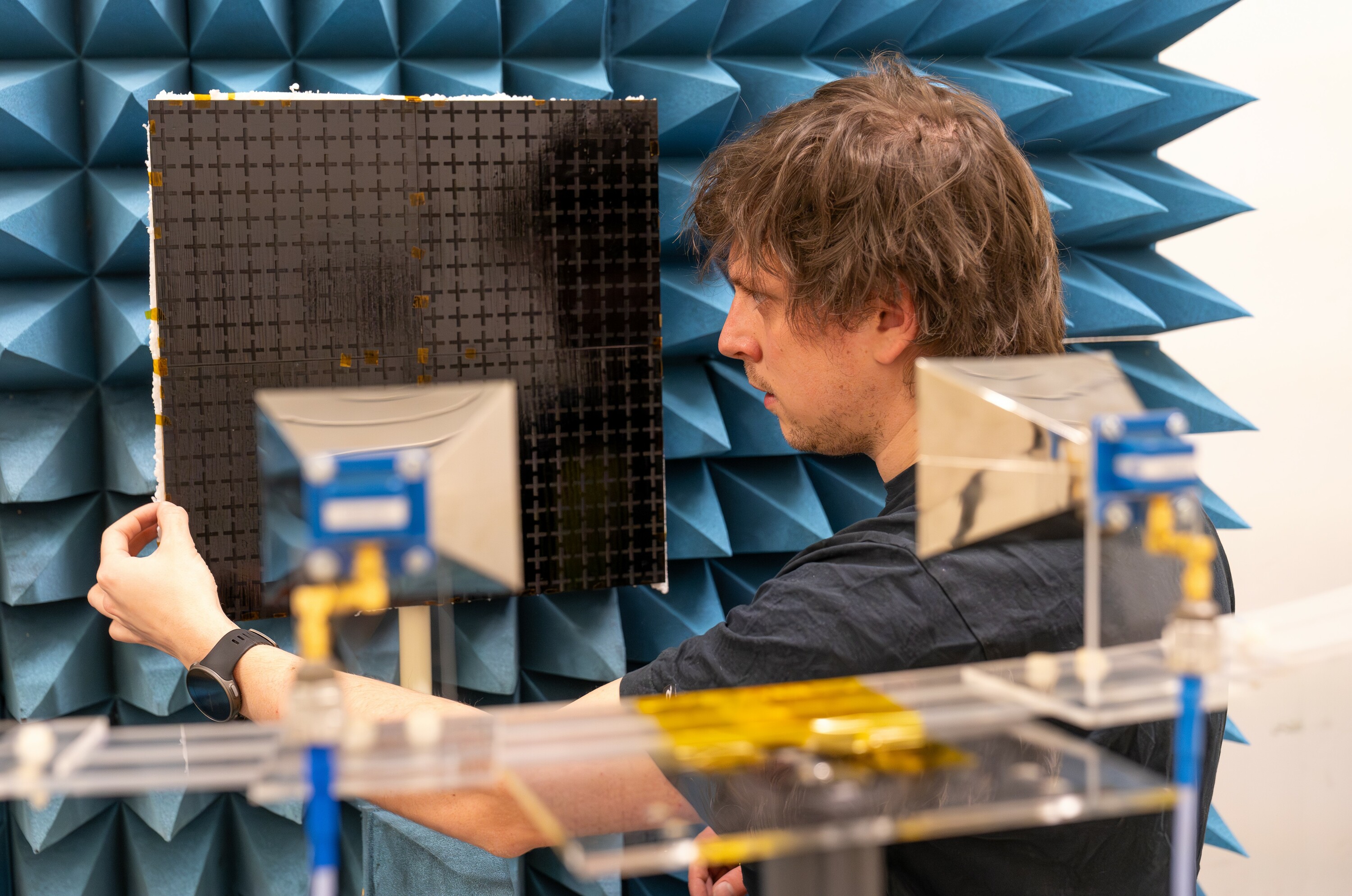Study Content
Considering a master's degree in Electrical Engineering? Here you can find out what content we teach you and which specializations you can choose.
Your profile
Whether IoT or industry 4.0, today it is all about linking up the Internet with the physical world. Environmental data is recorded using state-of-the-art sensors, processed with algorithms and conveyed via communication systems. In turn, it influences the real world via actuators. This crossover between the physical and digital worlds is where electrical engineering and computer technology sit.
With a master’s in Electrical Engineering, you will develop your own sensor systems using state-of-the-art electronic tools. You will take the data obtained from this, use it to process algorithms, and convey it via communication systems to actuators and anywhere else it is required. You will uncover your systematic thinking with the latest control technology and learn about communication technologies, from antennas to Internet applications.
Once you have completed your master’s studies, you will be proficient in all the key tools for working with sensors, actuators and communication systems and will be able to play a leading role in the fascinating world between analogue and digital.
Tailor Your Studies to Your Interests
Your studies consist of theory and context modules in your chosen profile of Electrical Engineering. Your specialization makes up two thirds of your degree program. You will develop professional knowledge via project work, additional classes and the Master’s thesis. You can choose an individual area of focus to suit your interests. When selecting your project work, you can demonstrate broad skills or choose to specialize in a specific area.
Additional Classes
Module descriptions of the additional classes offered are only available in German:
Theory and Context Modules
You complete one third of your master's degree as theory and context modules. Theory modules with technical-scientific focus (TSM) and advanced fundamentals (FTP) provide you with long-term knowledge and train your skills in abstract thinking. You complete your timetable with context modules (CM) from the fields of management, communication and culture.
Project Work and Master’s Theses
Project work and the master’s thesis form the core of your master’s program. The project work is completed in conjunction with one or more industrial partners or as part of publicly funded projects. This will involve handling practical, application-oriented research topics at a high technical level. The results you achieve could be incorporated directly into products or processes offered by the participating company.
Project Work Topics
This selection offers an insight into the wide range of possible project topics.
- Traffic Tracker, based on FMCW Radar
- BBP – Balance Based Pipetting
- Compact Very-Low-Power Receiver Front-End for Road Pricing Transponders
- Passiv-RADAR System
- Electronics for miniature temperature/humidity module
- ASIC for capacitive proximity detection
- Liquid sensors for pipetting automation
- Deep Learning for Condition Monitoring
- Embedded Real-Time Computer Vision
- Machine Learning for ECG classification
- Wireless sensor network for rockfall monitoring
- Mobile car power meter
- Directional Noise Reduction
- Reinforcement learning for roboter control
- Fingertracking using Computer Vision
Study Guidance
Each student receives intensive support from a student advisor. The first conversation with a student advisor is after acceptance. You work together to create a timetable that matches your interests and objectives. Your individual study agreement sets out your study objectives and the modules selected to achieve them.

